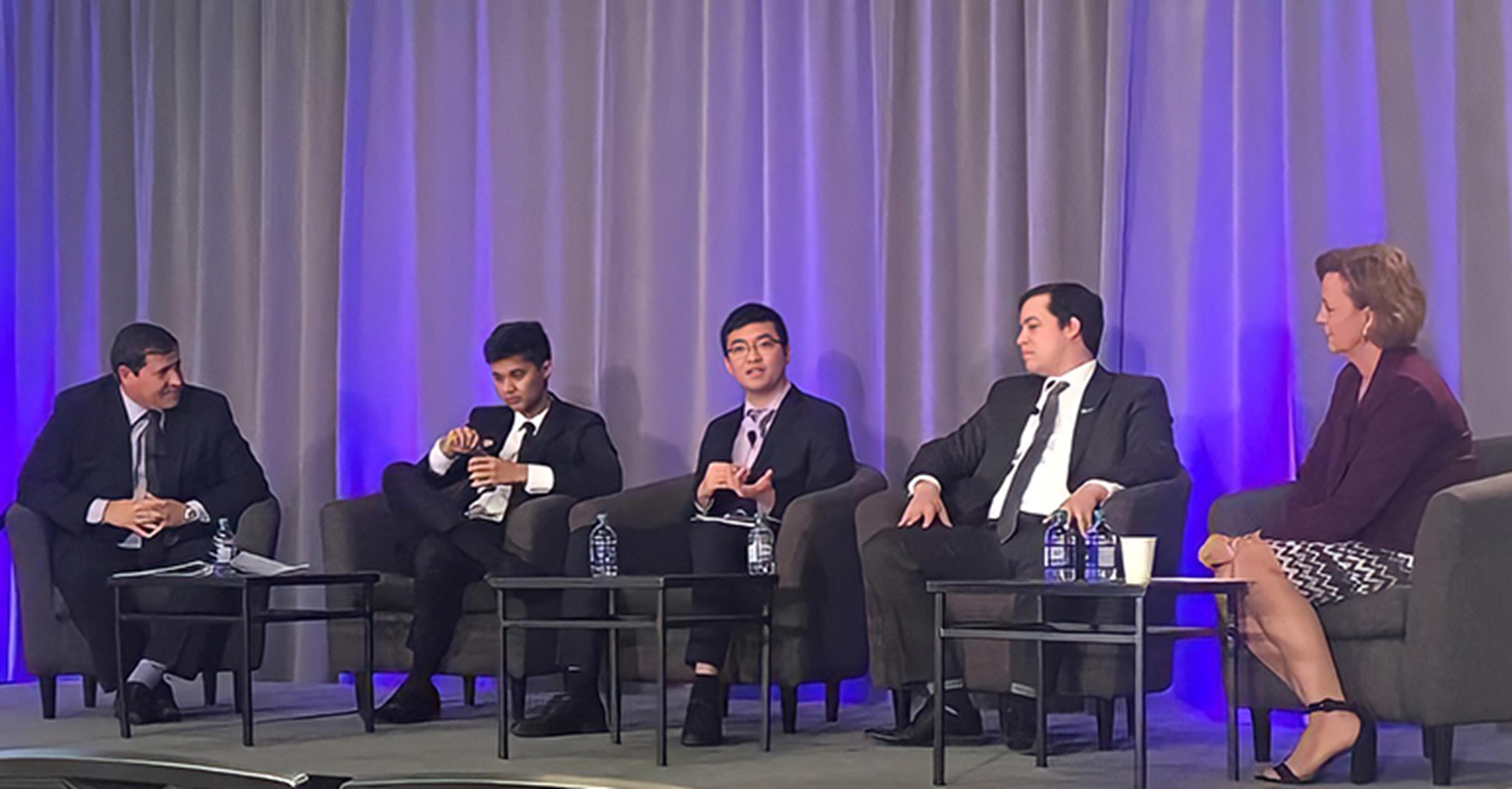My Path to CPA: Balancing Career Passions and CPA Practical Experience
Madison Haldenby, CPA is the VP Finance at Parallel Studios. She completed an Bachelor of Management and Organizational Studies, Finance Specialization at the University of Western Ontario. Madison lives in Toronto and is an avid camper.
As part of the practical experience component of the CPA certification program, Madison gained hands-on work experiences through the self-directed Experience Verification Route (EVR). We asked her about what she learned, her challenges and tips for mentorship and reporting.

Why did you become a CPA?
I have always really enjoyed learning about math, particularly practical applications of mathematical concepts that seem a little abstract. But then I took one accounting course and everyone was immediately asking my opinion on their in-depth tax questions, so I figured I better gain more education in the field.
What's your current role and what was your path to get there?
I currently work on everything finance and accounting as VP Finance for a really cool sci-fi gaming company called Parallel Studios. The game utilizes NFTs and smart contracts to create an experience that has attracted collectors and gamers to build a brilliant and engaged community.
Prior to my current role, I was an accountant at Wattpad. Accounting for high-growth entertainment tech may seem like the perfect launching point to take the financial reins for Parallel, but there’s a chance it was all the science fiction reading I did on the Wattpad app that truly prepared me for a life in blockchain accounting.
Why was EVR the best route for your practical experience?
I wanted to work within teams and industries that I felt a passion for, and EVR let me do just that. I first worked with a craft beer company, which came with a passionate community and a few perks. I then transitioned into tech because the app I was a fan of was looking for an accountant.
I always evaluated the career opportunities that came my way without focusing too much on ticking all of the EVR boxes. I figured if I continued to pursue a career in accounting and finance, I would meet the requirements in time. Or, if I did not meet the requirements at the moment, then it would likely be because I landed in an exhilarating company in a role that felt aligned in another way. Either way, I would have the EVR program to thank for its flexibility and the skills I was able to learn.
What did you find most rewarding or valuable about your practical experience?
I have always enjoyed reflecting on my work in the hopes of squeezing out a little more benefit. PERT reporting really forces you to reflect on the successes and shortcomings of your processes and the issues that you faced and maybe even overcame.
Knowing the targets I had to hit in my career in order to meet the EVR criteria provided me some guidance throughout the process. Earlier in my career I found myself taking on projects and developing solutions that would be meaningful, applicable and fun to write about for PERT submissions and I loved that.
What did you find most challenging about your practical experience?
I often found myself weighing collective corporate objectives and time against my personal desire to meet my EVR targets. There were many times throughout the journey where I regretted not prioritizing my reporting over my work, or I felt guilty for taking a few hours to formulate a PERT response that could have been spent on an account reconciliation.
There may be times in your career where it seems your job demands every waking moment of your life. During phases like this, I would recommend you take any opportunity to disconnect from your career and reconnect with nature, friends and family, if only briefly.
How did your CPA mentor assist you through your practical experience journey? What advice do you have for working with a mentor?
Part way through my EVR program, I switched mentors. This is strongly advised against, but I found switching to a mentor who was more familiar with the industry I was in made it easier to relate and was more rewarding. This was at a point in my career where my CPA goals had shifted to the backburner because of a hefty workload. Selecting the right mentor allowed me to meet both my career and CPA goals, and I looked forward to mentor meetings.
Mentorship is a great way to hear about and learn from the successes and hardships of someone who’s been dabbling in the financial arts for longer than you. I would advise EVR candidates to have fun with their mentorship meetings! You can learn valuable lessons and build a more rewarding relationship with someone who is happy to be open with you and willing to share all the dirty and delightful details of their profession.
What resources were most useful to assist you in reporting in PERT?
There are a lot of easily accessible resources within PERT, and the amount of information now available on what the reviewer must verify is very clear within the tool itself. I found it helpful to re-read the applicable guidance panel before beginning to sketch out my response, but I wouldn’t advise just simply meeting the requirements.
I found it very helpful to consult my internal resources, such as the documents and tools I created at work that applied to each specific situation described in my responses. Looking back through these items always brought up the finer details and complexities that strengthened my responses.
What tips do you have for other students who are reporting in PERT?
I’d encourage those reporting in PERT to focus on the specifics of the situation you worked on before trying to simply hit all the points listed in the guidance panels. Don’t shy away from writing about the challenges and learnings of your projects. It might be tougher to write about the stuff you did wrong before you got it right, but it makes the entire reporting process more rewarding.
Make sure to focus the majority of your response on how the work meets the competency area, instead of providing background info, so that the reviewer can assess your rating accurately and ask for additional follow-up info separately.
One thing to watch out for is that the amount of time since you began a position is factored into a reviewer’s ability to accept higher level responses. If you have been working at a position for under a year, they may not be able to accept multiple level 2 responses, even if you seem to meet all the requirements. Be aware of this limitation as you schedule your work and what projects you plan to discuss in your reports.
What do you wish you had known about practical experience at the start of your reporting?
In pursuing a demanding career and a fulfilling life there may not seem to be much room left for education. But, if you truly believe you can do anything you set your mind to, then what you do with your time is less about any singular achievement and more about the philosophical question of how to spend your limited time. Now I do not see a more rewarding use of time than expanding my understanding of anything, accounting or otherwise.
On the topic of demanding careers and navigating overwhelming workloads: the benefit you may receive from taking a moment to stare vacantly at a tree blowing in the wind as the sun sets is probably worth it, even if that moment feels like it would have been more effectively spent writing a level 2 response to technical competency FR4.


